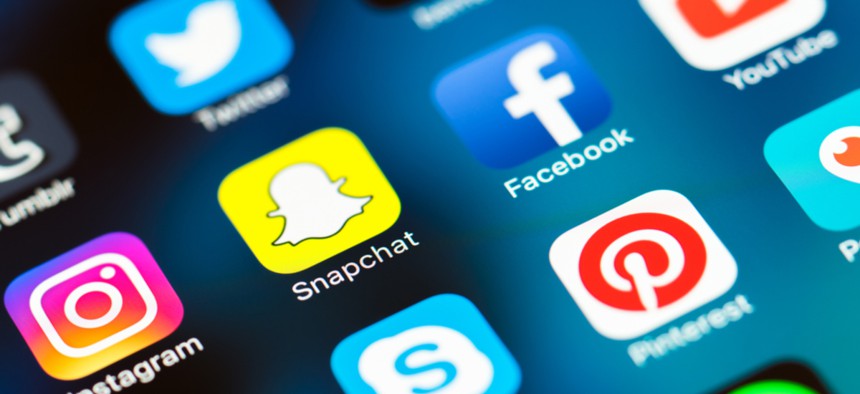Ignore the Haters, Federal Social Media Gurus Say

easy camera/Shutterstock.com
Humor continues to be a key element of the CIA's social strategy.
The CIA has a lot of haters, and some of the most vociferous make themselves heard in response to each post and tweet from the agency’s relatively new social media accounts.
Yet according to CIA social media lead Carolyn Reams, the spy agency’s approach to dealing with social media naysayers and trolls is similar to the popular online expression “haters gonna hate,” whereby the agency won’t respond to even the harshest critics and instead takes pride that those ardent haters still follow them.
“We get followers who love us, and some who hate us,” Reams said Thursday at SMWiFairfax, an event celebrating social media week, held in Fairfax County, Virginia. “Even if you hate, hopefully, you’ll still follow us.”
» Get the best federal technology news and ideas delivered right to your inbox. Sign up here.
Reams helped launch the CIA’s Twitter presence in June 2014 with the line, “We can neither confirm nor deny that this is our first tweet,” a humorous take on the agency’s frequent inability to speak publicly about what it’s up to. Humor, Reams said, is part of her strategy to “humanize the agency” by linking to unclassified historical archives and sharing other content—something she surprisingly said she doesn’t lack for.
In fact, Reams said she’d in the early stages of exploring how the CIA could use new platforms like Instagram and Snapchat to better engage the public.
“I don’t lack for content, I lack for time,” Reams said.
The Defense Intelligence Agency—one of the CIA’s sister agencies in the intelligence community—has embarked on a similar social media journey, according to Lt. Col. Vinston Porter, the agency’s public relations and outreach officer. Porter said the agency uses a mix of YouTube videos, speeches from leadership and occasionally pop culture to “increase engagement and interactivity” with followers. Earlier in the summer, Porter said the DIA’s twitter account tweeted at Dunkin Donuts’ account on National Donut Day, beginning an entertaining exchange.
“You have this narrow lane of information you can talk about in an open forum, and what we try to do is maximize that very narrow lane,” Porter said. “It’s about more engaging content for the public to see for the public to understand us better.”
It may not always appease critics, but Porter said engaging its social following helps DIA educate the public about what it is and does.
NASA, too, has its fair share of social media trolls, but the space agency doesn’t shy away from posting cool science-related images, research, mission news or data points from its many social accounts. If science is NASA’s business, its social sites help share that science with the world.
“It’s in the charter of NASA to be not only a citizen agency but to do public outreach,” said Aries Keck, social media team lead at the NASA Goddard Space Flight Center. “If we can get more people tweeting about science than the Kardashians, that’ll be a good day.”
NEXT STORY: Google Maps Street View Gets an Upgrade



